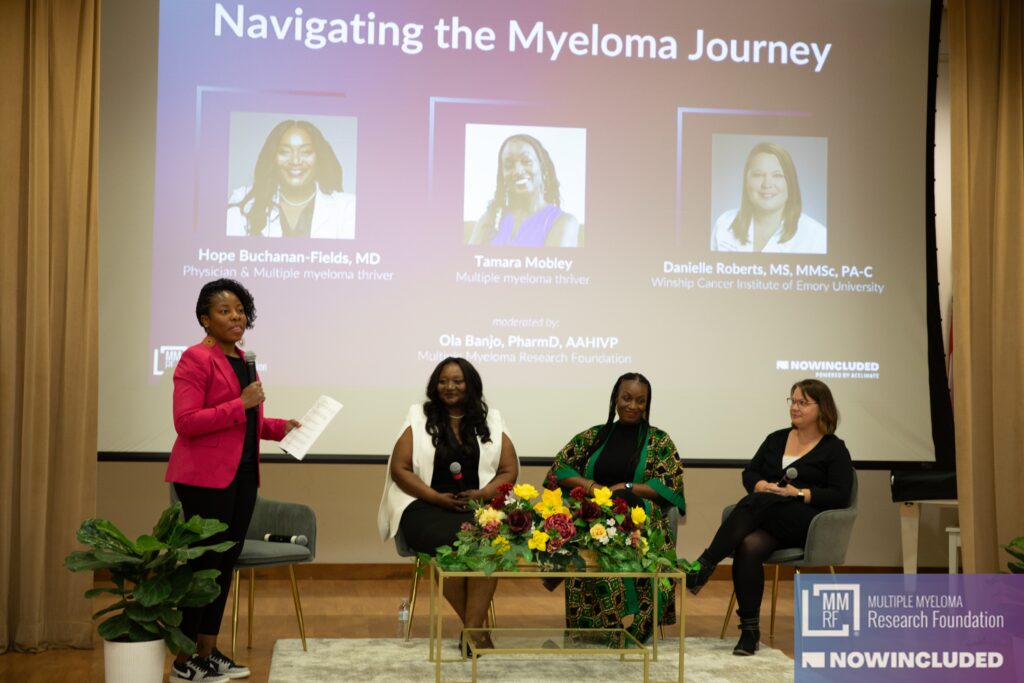Article reposted from Curebase
Written by Dr. Charles Baum, Curebase Principal Investigator and former VP of US and EU Medical Affairs at Takeda Pharmaceuticals
In the year 2022, there have been numerous advancements in modernizing GI studies but it doesn’t stop there. As new technology develops and virtual care trends become concrete, there is a growing need for innovative solutions that can accelerate and reimagine study designs. My work with Curebase has given me unique insights into where the future of GI studies are headed and how the Curebase trial execution model plays a role.
How tech-savvy research organizations can be utilized in various GI spaces
A large number of gastroenterology (GI) cases fall into the category of functional conditions, meaning they are symptom-based. Studies of functional GI diseases have historically been hampered by cumbersome data collection systems and the lack of easily administered daily symptom surveys. Decentralized clinical research can facilitate the development of new treatment options, improve enrollment of poorly represented patient populations, and help improve the understanding of these disease syndromes.
Curebase’s study model is ideal for functional GI cases due to the use of self-administered symptom surveys as the method for assessing disease outcomes. These surveys when coupled with daily symptom assessments provide a state-of-the-art data collection system that can be applied through a sophisticated web-based platform. The near “real-time” assessment of disease outcomes allows for the collection of extremely valuable intelligent patient data. In a previous study completed with Curebase of irritable bowel syndrome (IBS), all patient surveying was completed through the Curebase platform allowing patients to report their conditions remotely while giving clinicians real-time data.
Data collection methods and quality are crucial components to study approvals and publishings and the Rome Foundation, working with the FDA, has provided a roadmap for the conversion of paper surveys to online surveys. The growth of online surveying has facilitated data collection for product registration (pharmaceuticals, devices, and digital pharmaceuticals) and outcomes analyses.
Another GI category is diseases of the pancreas, liver, and gallbladder. The decentralized clinical trial methodology can improve the collection of information on poorly understood aspects of these diseases such as chronic pain, quality of life, digestive symptoms, and appetite. GI solid organ diseases such as hepatitis and pancreatitis when coupled with home nursing and support and virtual symptom assessments can help reduce the need for clinic visits and in-person care allowing for improvements in quality of life. These sorts of clinical care innovations challenge research companies to be more creative with patient sample collections, telemedicine capabilities, and patient engagement tactics.
A third GI category that presents a great deal of potential for remote studies is in inflammatory diseases of the bowel (IBD) such as Crohn’s disease and ulcerative colitis. There is currently a huge amount of money being invested in the development of IBD therapeutics. Many of the assessment tools needed for these studies are survey-based instruments that can provide more frequent assessments of disease activity and allow for rapid treatment decisions that prevent costly complications and hospitalizations. Research organizations that can operate in close collaboration with gastroenterologists (especially in community settings) have a large potential to grow this study area and potentially develop new treatment and digital therapeutic options.
In my experience, Curebase’s end-to-end clinical trial execution capabilities have the potential to grow the GI clinical trial space and create new opportunities for gastroenterologists to develop uniquely designed studies that can further our collective understanding of gastroenterology. A key component to this would be Curebase’s ability to integrate with gastroenterologists and their practices to offer a culmination of virtual and in-person study components to deliver a comprehensive trial experience that reaches far more patients than those in a typical academic setting only.
Revolutionizing recruitment procedures
Recruitment has always presented a significant challenge in any study, especially in GI studies that historically depended on clinic enrollment that enlisted patients as they came to these care facilities, which was quite a slow process. Furthermore, busy clinical practices aren’t the right place for participant enrollment unless there is a designated team dedicated only to patient recruitment. A digital, in-clinic solution, however, that can rely on patients’ self-administering enrollment questions, screenings, and eConsent in conjunction with target ads can optimize and expedite study recruitment with limited resource waste.
There is also an opportunity to partner with support or advocacy groups to leverage their relationships with patients to facilitate the connection between studies and patients who qualify. Using patient advocacy groups could ensure studies are getting access to large pools of qualifying subjects extending the trial’s reach and making studies more accessible and applicable to a broader range of patient subgroups (e.g., minorities, elderly, and children). Having the support and backing of patient advocacy groups can also be very important in building rapport with participants who hear of the study from websites and online community groups they trust.
Boosting patient engagement and retention
Participant retention is so important to patient care and study outcomes. Technology-based programs to monitor disease activity has evidence that says that if you periodically reach out to patients through mobile devices and ask for the status of their conditions you can predict flareups to keep patients out of the hospital or from needing to be readmitted. Gamification is an important means of keeping patients engaged in a study and maintaining retention over time. It’s not enough for patients to just fill out a survey every three months – technology solutions that make the process engaging will improve retention. With the utilization of Curebase’s cutting-edge technology, we can incorporate gamification technology into preexisting patient platforms, boosting patient engagement, and involvement significantly.
Addressing disparities within studies
Whether it’s age, gender, race, ethnicity, or socioeconomic status, there are clear disparities among these compositional groups, and with these disparities come unique challenges that need to be considered when administering care.
GI disease affects children almost as much as it affects adults and yet many therapy and treatment options have been studied and approved only in adults. Pediatricians are looking for ways to make pediatric GI research easier and more feasible to be able to offer children treatments that have been tested and approved within their age group. With technology-enabled studies and remote monitoring options, there are huge opportunities for new research. There are diseases that have differences among ages and genders so understanding these disparities is very important to take into consideration when designing studies.
Gender imbalances in care can have large impacts on studies of all kinds. As an example, male patients with functional GI diseases tend to be less forthcoming in reporting symptoms directly to clinicians, as a result, data quality can suffer. If studies can offer patients remote options for reporting private symptoms or concerns to their care providers, not only will data be far more substantial and accurate, but patients will be able to receive more targeted treatment options as well.
Racial and ethnic differences can be equalized via technology by reaching people in a way that we’ve never been able to do before. By utilizing technology solutions that are culturally appropriate and literate for all participants, studies can become much more inclusive and cater to much larger populations of potential participants. People should not be limited by language, reading levels, or diction barriers when it comes to participating in studies. Focus groups and qualitative research can be done to ensure study questions mean what they are intended to mean to the population you want to study and to ensure that patients are understanding questions properly. Not only will this validate technology platforms among various diverse populations but it will also increase data quality for studies and equalize care accessibility which is very valuable from a research standpoint.
The future of patient adherence to digital therapeutics (DTx) and medication regiments
There are specific approaches that can be used to optimize patient adherence. I’ve discovered that adherence is like managing a chronic disease or following diet instructions – there are behavioral elements and environmental impacts (depression, finances, employment, etc.) that make it much more complicated than just remembering to take a pill. There is an opportunity to create an environment via technology that is capable of assisting patients with these challenges, improving treatment outcomes, patient expectations, hesitancies, barriers, and more.
Patients need to be able to understand why they are prescribed a medication or therapy and the value it brings them. Education about their treatment is an important aspect of medication adherence platforms and helps patients reach their short-term and long-term goals. Thus, technology that can do more than just remind patients to take their pills can be a game-changer in treatment adherence.
Looking to the future, there would be numerous benefits to potentially supplying study participants, at the end of the study, with a synopsis of their personal data, goals, and accomplishments during the study. An area of active research is the impact of periodic updates during the course of a study to help keep subjects engaged. Although there would need to be careful considerations to not influence outcomes, there is a psychological component of patients seeing their progress that could have a significant motivational impact. Giving patients an option to receive a debriefing with their study progress upon completion would be a strong differentiation factor for modern research organizations and data collection platforms that could strongly influence the future success of patients’ personal care and overall experience.
The future of GI studies lies within the adoption of a comprehensive technology-driven solution that is flexible and amenable to the needs of the study and patients while offering innovative features to revolutionize how GI studies are designed and managed. Curebase has reshaped clinical trials and continues to pioneer new ways of conducting GI studies that aligns with where industries are headed and expand access to more patients suffering from GI conditions.
Dr. Charles Baum M.D., M.S., FACG, has a 30+ year career as an academic, gastroenterologist, researcher and innovator with 10 years as a bench scientists focused on GI disorders. With extensive experience in pharmaceutical R&D, Dr. Baum has experience with over 5 different Curebase studies and a vast network for gastroenterologists working in Chron’s.









